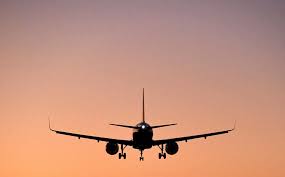Protection of Interests in Aircraft Objects Bill, 2025

- 04 Apr 2025
In News:
The Protection of Interests in Aircraft Objects Bill, 2025, recently passed by the Rajya Sabha, aims to implement two key international agreements in India’s legal framework:
- Cape Town Convention on International Interests in Mobile Equipment (2001)
- Protocol to the Convention on Matters Specific to Aircraft Equipment
Objective:
To provide legal clarity and security to stakeholders in the aviation leasing industry by integrating global standards into Indian law.
Background:
- India became a signatory in 2008 after Cabinet ratification in 2007.
- The Cape Town Convention addresses complex issues of cross-border leasing and financing of high-value mobile assets like aircraft, helicopters, and engines.
- With over 86.4% of India's 840 commercial aircraft under leasing arrangements, there was an urgent need for a dedicated legal framework.
Key Provisions:
- Directorate General of Civil Aviation (DGCA) is designated as the registry authority.
- Responsible for registration and deregistration of aircraft.
- Creditors must notify the DGCA prior to initiating recovery actions in case of defaults.
- In case of default by airlines:
- Creditors can reclaim aircraft or related equipment within two months, or as per a mutually agreed period.
- Lessors and airlines are required to regularly inform the DGCA about dues and lease activities.
- The central government is empowered to make rules for the implementation of the convention and protocol.
Expected Benefits:
- Enhances legal protection for creditors and lessors.
- Reduces leasing costs by an estimated 8–10%, potentially lowering airfares for consumers.
- Encourages the growth of a domestic aircraft leasing industry, reducing dependence on foreign jurisdictions like Ireland, Singapore, and Dubai.
Civil Aviation Minister’s Remarks:
- The Bill addresses a long-standing legislative vacuum.
- It will bolster investor confidence and attract leasing businesses to India.
- Airfare regulation remains complex and is influenced by multiple factors including fuel prices, leasing charges, and maintenance costs.
